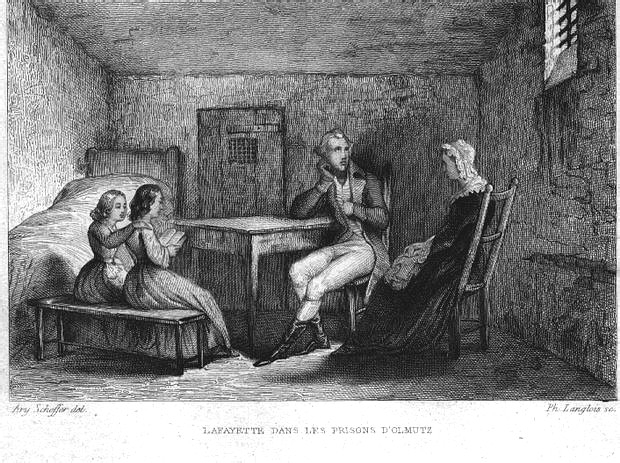In 1795, his family joined him in prison
One of the interesting facts about Marquis de Lafayette is his family joined him in prison in 1795. In April 1792, war broke out between France and the nations of Austria and Prussia. When Lafayette discovered the French Army was supporting the extreme turn in the French Revolution, he quickly resigned from his military leadership. Lafayette was charged with treason after criticizing this revolutionary development in public. Following a few weeks of rebel attacks on the royal family, La Fayette dispatched her warriors to Paris to defend them. Empress Marie Antoinette declined out of dread for La Fayette. As the Oversight Committee and the Jacobin faction gained strength, La Fayette went back to Metz. The Jacobins requested that La Fayette renounce his post as head of the National Guard and return to Paris after he rejected an offer to become president in exchange for his betrayal of the monarch. La Fayette was accused of treason and given an absentee sentence on August 19 as a result of his efforts in favor of and defense of the monarch.
He decided to seek asylum in the United States after realizing that he would be executed if he went back. Lafayette to sail to the US by crossing through the Netherlands and then across England. However, La Fayette's attempt to flee was unsuccessful, and he was eventually apprehended by the Austrians in the Dutch Republic and imprisoned at Wesel, Kingdom of Prussia. Instead, Prussian soldiers detained him and then turned him over to the Austrians, who put him in jail. Other European royals were worried that Lafayette might start additional revolutions if he was allowed to remain free because of the public's understanding of his participation in the American and French revolutions. However, thanks to American diplomatic assistance, Lafayette was able to find decent lodging in prison. Adrienne moved to Austria with her two adult daughters, Anastasie and Virginie, while her son George had gone to the United States. Adrienne went to Vienna to desire to live with La Fayette, who was being held with the emperor Franz II. When she arrived at the jail in Olmütz, she was granted permission to reside with her husband in his claustrophobic and undeveloped prison barracks.












